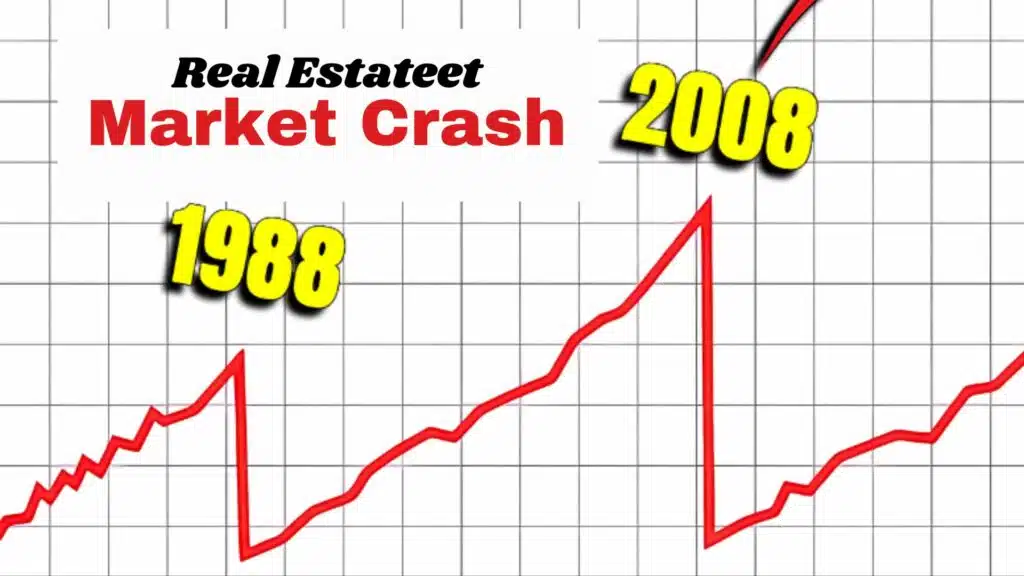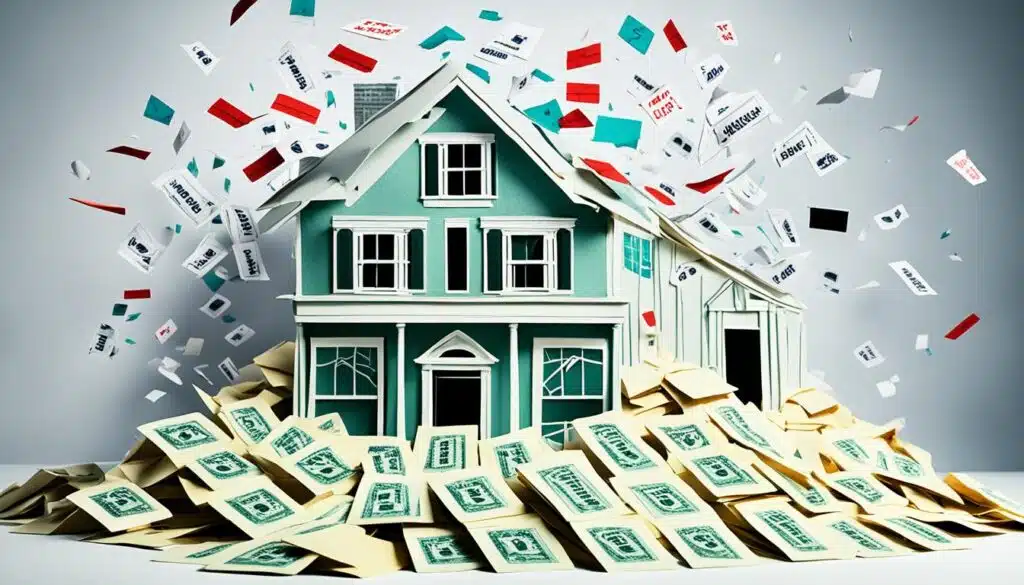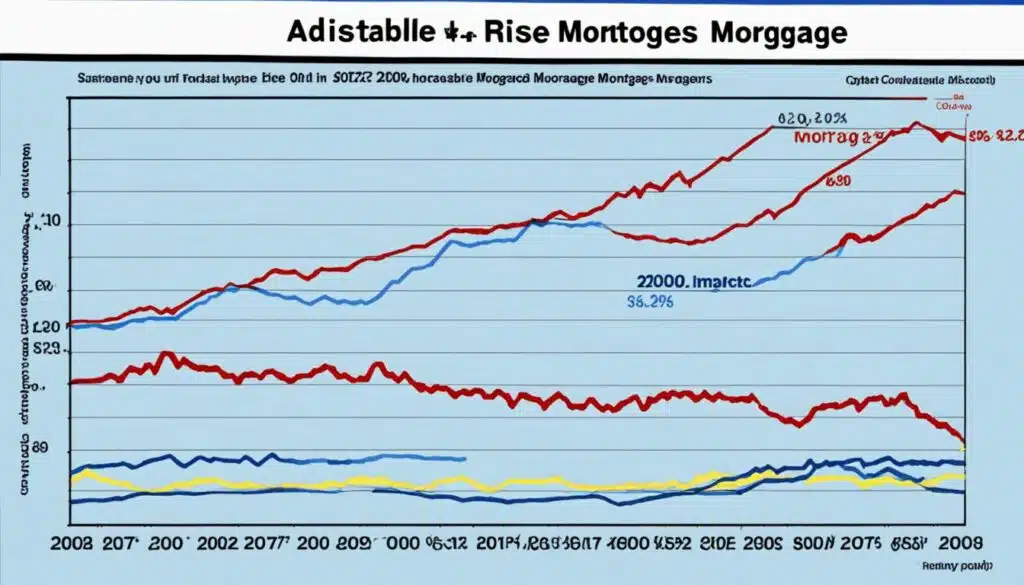
The 2008 real estate market crash was a major event in the U.S. financial history. It deeply affected millions of homeowners and investors. The crash was caused by risky lending and the rise of subprime mortgages. These issues led to a sharp decline in home values and a broader economic impact.
This guide will explore the main events and factors that led to the crash. We’ll also look at its lasting effects on homeowners and investors. By understanding these aspects, we can learn valuable lessons for the future.
Key Takeaways
- The 2008 real estate market crash was triggered by risky lending practices.
- Subprime mortgages played a crucial role in the crisis.
- Homeowners experienced significant impacts, including foreclosures and loss of home equity.
- Investors faced severe losses as the stock market plummeted alongside real estate values.
- Understanding the causes of the market crash helps in preparing for future economic downturns.
- Lessons learned emphasize the importance of financial literacy for both homebuyers and investors.
Introduction to the 2008 Real Estate Market Crash

The 2008 real estate market crash was a major event in American economic history. It had big effects on many parts of society. This crash started with a rise in home prices, caused by people investing too much and wanting more real estate.
Then, easy lending led to many people buying homes they couldn’t afford. These homes had low initial payments that later became too high. This led to many defaults and a big increase in foreclosures, affecting the whole financial and housing markets.
The crash’s effects went beyond just homeowners. It hit banks, investors, and markets worldwide. Knowing what led to the 2008 crash helps us understand the big problems it caused.

Causes of the 2008 Real Estate Market Crash
The 2008 real estate market crash was caused by many factors that worked together. These factors made the financial situation very unstable. Knowing what caused it helps us understand the crisis better.
Subprime Mortgages and Their Role
Subprime mortgages were a big problem. They were given to people who didn’t have good credit. This let them buy homes, but many couldn’t pay back the loans. As more people defaulted, the housing market started to fall apart.
Stock Market Fall 2008: A Breeding Ground for Instability
The stock market fell sharply in 2008, making things worse. This drop made people unsure about the future. They pulled their money out of the market, which hurt the economy even more.
Government Policies Impacting Home Ownership
Government policies pushed for more home ownership. They helped low-income buyers get mortgages. But, there was no good check on these loans, leading to a big crisis.

Key Events Leading to the Market Crash
The 2008 real estate market crash was caused by several key events. These events changed how people borrowed money and invested in homes. Many took out adjustable-rate mortgages, hoping for lower initial payments. But these rates could go up later, making it harder for people to pay.
This led to more financial risk for borrowers and made the market unstable. It set the stage for the crash that would soon happen.
The Rise of Adjustable-Rate Mortgages
Adjustable-rate mortgages seemed like a good deal at first. They offered lower payments that attracted many buyers. But, these loans could have higher payments later on.
This could cause big problems for homeowners. Many homeowners struggled with their payments and ended up defaulting on their loans.
Increased Speculation and Investment Trends
In 2008, more investors started buying homes to sell for a profit. This made housing prices go up too fast. The market became unstable because of this.
Combining adjustable-rate mortgages with a lot of speculation made things worse. Everyone was optimistic, but this optimism led to the market crashing.

Impact of the Market Crash on Homeowners
The 2008 market crash hit homeowners hard across the United States. Many faced big financial problems, especially with foreclosures and how it affected first-time buyers.
Foreclosures and Home Values
Foreclosures went up a lot during this time, making there more homes for sale than buyers. This caused home values to drop a lot. Homeowners were in tough spots, with their mortgage debt more than their home’s value.
This made their financial situation worse and made it hard to sell their homes or get new loans.
Effects on First-Time Homebuyers
First-time homebuyers faced big hurdles because of the market crash. With tighter credit and lower home prices, getting a loan became harder. New rules made it tough for new buyers to get into the market.
This added stress to both current homeowners and those trying to buy their first home. It showed how complex the problems were from this crisis.
Effects on Investors and the Stock Market
The 2008 real estate market crash had big effects on investors and the stock market. It’s important to understand how real estate and stock markets are connected. This helps us see the big impact of the crash on different people.
Market Crash Correlation: Real Estate vs. Stock Market
When home values fell, investors lost a lot of money in real estate. This made the housing market worse, which hurt stock prices, especially for banks tied to subprime mortgages. Banks went under, making investors lose trust and causing more stock market ups and downs.
Stock Crash 2008: What Investors Should Know
The 2008 stock crash was a tough time for investors, especially those with real estate investments. Stocks were sold off fast as fear spread, leading to a big recession. Stocks linked to real estate and banks fell a lot, making investors and experts worried.
| Factors | Impact on Real Estate | Impact on Stock Market |
|---|---|---|
| Declining Home Values | Significant loss of equity for homeowners | Decrease in stock prices for related companies |
| Investor Confidence | Reduced investment activity in real estate | Panic selling leading to market instability |
| Bank Failures | Rampant foreclosures impacting the supply | Heightened volatility in financial sector stocks |
The 2008 Real Estate Market Crash: A National Perspective
The 2008 real estate market crash changed the United States deeply. It was a key moment in economic history. The crash not only changed the housing market but also affected many lives.
It reached beyond just homeowners to local economies and the financial sector too.
Areas with a lot of subprime lending faced big challenges. The crash showed how different parts of the country were affected in different ways. Some places saw big drops in property values, leading to more foreclosures.
This made community problems worse.
- Economic instability led to many job losses.
- Government help was needed to stabilize these areas.
- Big federal programs were set up to lessen the damage.
Learning about the 2008 crash helps us see how connected regional economies are. The lessons from this big event still shape economic policies today.
Long-term Consequences of the Crash
The 2008 real estate market crash changed the housing market deeply. It led to big changes in lending and set the stage for new real estate rules.
The Changing Landscape of Lending Practices
Lenders became more careful after many people defaulted on mortgages. They now have stricter rules for giving out loans. These rules include checking income more closely and requiring higher credit scores. This makes borrowing for homes more responsible.
Speculative lending went down, making home financing safer.
Impact on Future Real Estate Regulations
After the crash, new rules were made to protect buyers and make finance clearer. The Dodd-Frank Act is a key example. It made banks more accountable and set stricter loan rules.
These changes aim to reduce risks and protect consumers from the housing market’s problems. They help find a balance between letting the market work and keeping buyers safe.
| Aspect | Before the Crash | After the Crash |
|---|---|---|
| Lending Standards | Loose, minimal verification | Stricter, comprehensive verification |
| Mortgage Approval Rates | High approval rates | Selective, cautious approvals |
| Regulatory Oversight | Limited oversight | Enhanced regulatory measures |
| Consumer Confidence | Waning confidence | Gradual rebuilding of trust |
Lessons Learned from the 2008 Crisis
The 2008 real estate market crash was a major event in financial history. It showed how crucial it is for homebuyers and investors to learn from it. Financial mistakes played a big role in the crisis. So, learning about money matters is now key for those looking to buy homes.
Knowing about mortgages, interest rates, and the housing market helps people make smart choices. This knowledge helps them dodge the mistakes of the past.
Importance of Financial Literacy for Homebuyers
The 2008 crisis taught us the value of better financial knowledge. Homebuyers need to understand their finances and the mortgage options out there. This knowledge lets them see risks, manage money well, and handle the challenges of owning a home.
By focusing on learning about money, new buyers can protect themselves from past errors. This education is a powerful tool for success.
Strategies for Future Market Stability
Improving financial knowledge among homebuyers is just part of the solution. We also need strong strategies for a stable market in the future. Keeping an eye on the economy and its trends is crucial for spotting problems early.
Encouraging responsible lending through strict rules can also protect the housing market. These steps help make the real estate world more stable for everyone involved.
FAQs
What were the primary causes of the 2008 real estate market crash?
The 2008 real estate market crash was caused by many factors. These include subprime mortgages, risky lending, and speculative investments. Government policies also played a part by encouraging risky loans without enough checks.
How did the stock market fall in 2008 relate to the real estate market?
The stock market and real estate market were closely linked in 2008. When home values dropped, investor confidence fell too. This led to big losses in portfolios and a sell-off in the stock market. This cycle made the financial situation worse.
What impact did the 2008 market crash have on homeowners?
Homeowners suffered a lot from the market crash. Foreclosures and home value drops were common. Many homes were worth less than the mortgage debt, leaving homeowners in a tough spot.
How did the crash affect first-time homebuyers?
First-time buyers faced big challenges after the crash. Lending standards got stricter, making it harder to get a mortgage. High home prices and less credit availability made it tough for new buyers to enter the market.
What regulatory changes were implemented after the 2008 crash?
After the crash, new rules like the Dodd-Frank Act were made. These aimed to improve financial institution oversight and make lending clearer. The goal was to prevent future crises.
What lessons can homebuyers learn from the 2008 crisis?
A key lesson from 2008 is the need for financial knowledge in homebuying. Understanding mortgages, interest rates, and loan types helps buyers make smart choices. This can help avoid the mistakes of the past.
What long-term consequences did the crash have on lending practices?
The crash led to stricter lending rules. Lenders now check credit more closely to reduce risk. This makes the housing market stronger and less prone to crashes.
How did the 2008 crash impact investors?
Investors lost a lot in 2008, especially those in real estate. The stock market drop led to lower asset values and losses in many portfolios. This added to the recession.
What regional effects were observed following the market crash?
The crash hit different areas hard, especially those dependent on subprime lending. These areas faced job and business losses, leading to government support efforts.






